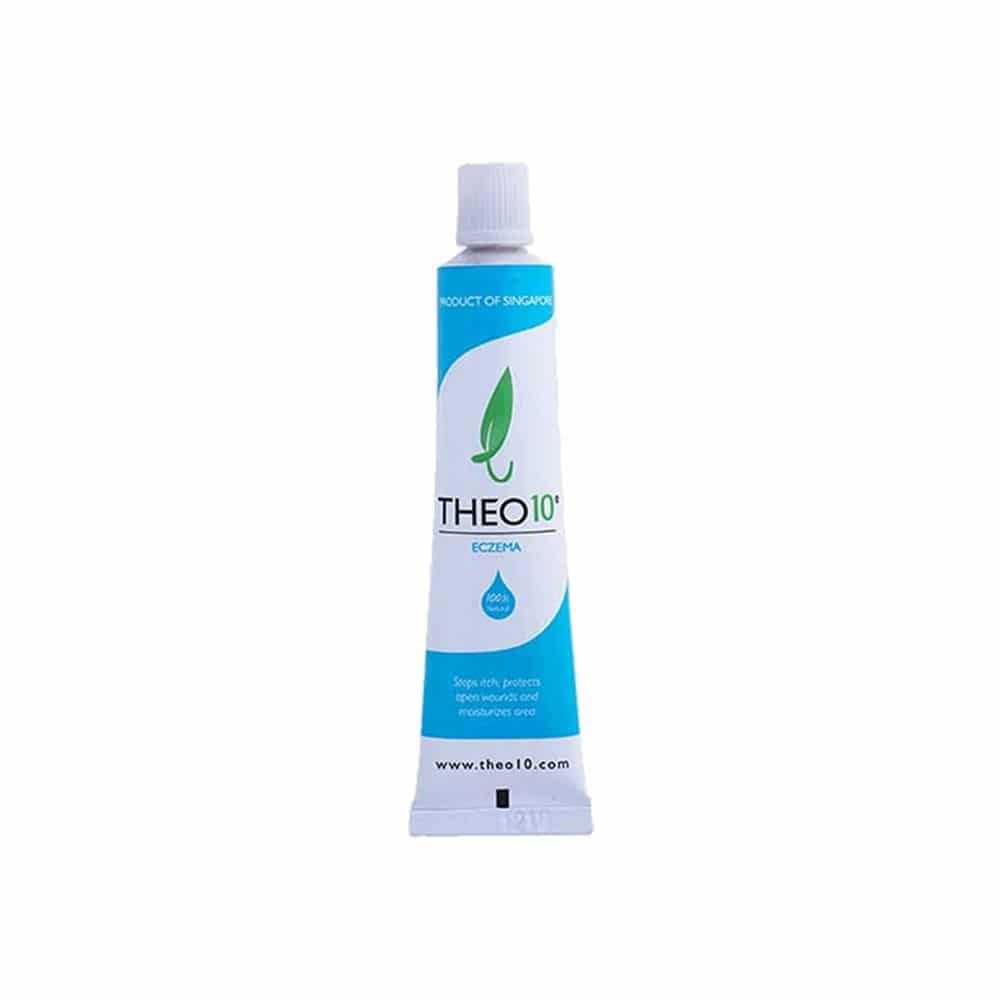
Eczema Cream
Highlights
Key Ingredients
Other Ingredients
Skim through
| Ingredient name | what-it-does | irr., com. | ID-Rating |
|---|---|---|---|
| Manuka | antimicrobial/antibacterial, antioxidant | goodie | |
| Beeswax | emollient, viscosity controlling, emulsifying, perfuming | 0, 0-2 | |
| Bee Propolis | |||
| Neem Seed Oil | |||
| Peppermint Essential Oil | perfuming | icky |
Theo10 Eczema CreamIngredients explained
The essential oil coming from the Manuka tree native to New Zealand. It is distantly related to the Australian Tea Tree Oil, although their chemical composition is very different.
The main antibacterial active in tea tree oil is terpinen-4-ol (40%), while manuka's main actives are so-called cyclic triketones, such as Leptospermone, Iso-leptospermone, and Flavesone (20-30%). Both oils are antibacterial and antifungal but in different ways.
While tea tree oil is a pretty well established anti-acne ingredient, manuka has more of a "might be useful" status for problem skin. Its strong suit is treating fungal infections such as athlete's foot, nail bed infections or foot odor. Other than that, manuka can help to relax muscles (useful for treating muscle and joint pain) and also has some antioxidant activity.
It's the yellow, solid stuff that you probably know from beeswax candles. It's a natural material produced by honey bees to build their honeycomb.
As for skincare, it's used as an emollient and thickening agent. It's super common in lip balms and lipsticks.


The essential oil coming from steam distillation of freshly harvested, flowering peppermint sprigs. Its major component is menthol that gives the oil its well-known refreshing and cooling properties. Peppermint oil is traditionally used as an inhalant for cold and coughs and there is also some clinical data validating its use against headaches by rubbing a peppermint oil cream on the forehead.
As for skincare, other than the nice grassy-minty smell and the refreshing sensations, we cannot write good things. It can be a skin irritant, so much so that it is a well-known counterirritant for muscle pains creating mild surface irritation to make things better in the deeper layers. But for everyday skincare, counterirritation is not something you wanna do, so we think that peppermint oil is better to avoid, especially if your skin is sensitive.
You may also want to take a look at...
| what‑it‑does | antimicrobial/antibacterial | antioxidant |
| what‑it‑does | emollient | viscosity controlling | emulsifying | perfuming |
| irritancy, com. | 0, 0-2 |
| what‑it‑does | perfuming |





